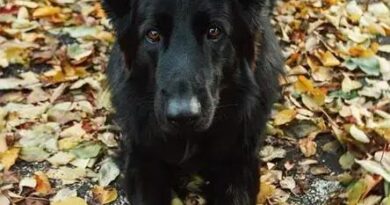What is: Xylitol toxicity and prevention
What is Xylitol?
Xylitol is a sugar alcohol commonly used as a sweetener in various products, including sugar-free gum, candies, and some baked goods. While it is safe for human consumption, it poses a significant risk to dogs. When ingested by dogs, xylitol can lead to severe health issues, including hypoglycemia, liver failure, and even death. Understanding the dangers of xylitol is crucial for pet owners to ensure the safety of their furry companions.
How Does Xylitol Affect Dogs?
When a dog consumes xylitol, it is rapidly absorbed into the bloodstream, causing a sudden release of insulin from the pancreas. This spike in insulin leads to a rapid decrease in blood sugar levels, resulting in hypoglycemia. Symptoms of xylitol toxicity can appear within 30 minutes of ingestion and may include vomiting, loss of coordination, seizures, and lethargy. In severe cases, it can lead to coma or death if not treated promptly.
Symptoms of Xylitol Toxicity in Dogs
Recognizing the symptoms of xylitol toxicity is vital for timely intervention. Common signs include vomiting, weakness, tremors, and difficulty walking. As the condition progresses, dogs may experience seizures and loss of consciousness. If you suspect your dog has ingested xylitol, it is essential to seek veterinary care immediately, as early treatment can significantly improve outcomes.
What to Do If Your Dog Ingests Xylitol?
If you believe your dog has consumed a product containing xylitol, do not wait for symptoms to appear. Contact your veterinarian or an emergency animal clinic right away. Provide them with as much information as possible, including the amount of xylitol ingested and the time of ingestion. Your vet may recommend inducing vomiting or administering activated charcoal to prevent further absorption of the toxin.
Preventing Xylitol Exposure
Preventing xylitol toxicity starts with being vigilant about the products you have in your home. Always check ingredient labels on food items, especially sugar-free products, and keep items containing xylitol out of reach of your pets. Educate family members and guests about the dangers of xylitol to ensure they do not accidentally leave harmful products accessible to your dog.
Common Products Containing Xylitol
Xylitol is found in a variety of products, including sugar-free chewing gum, mints, toothpaste, and some baked goods. Additionally, certain medications and dietary supplements may also contain xylitol. It is crucial to be aware of these products and to store them securely to prevent accidental ingestion by your dog.
How Much Xylitol is Toxic to Dogs?
The toxicity of xylitol in dogs is dose-dependent. As little as 0.1 grams of xylitol per kilogram of body weight can cause hypoglycemia, while doses above 0.5 grams per kilogram can lead to liver failure. For example, a single piece of sugar-free gum containing xylitol can be toxic to a small dog. Always consult your veterinarian for specific guidance based on your dog’s weight and health status.
Veterinary Treatment for Xylitol Toxicity
Treatment for xylitol toxicity typically involves hospitalization and supportive care. Your veterinarian may administer intravenous fluids to stabilize blood sugar levels and monitor liver function. In severe cases, additional treatments such as medications to control seizures or liver protectants may be necessary. The prognosis depends on the amount of xylitol ingested and the speed of treatment.
Long-Term Effects of Xylitol Toxicity
Dogs that survive xylitol toxicity may experience long-term effects, particularly if there was significant liver damage. Regular veterinary check-ups are essential to monitor liver function and overall health. Some dogs may recover fully, while others may have lasting health issues. It is crucial to follow your veterinarian’s recommendations for ongoing care and monitoring.
Conclusion: The Importance of Awareness
Understanding xylitol toxicity and prevention is vital for all dog owners. By being aware of the dangers and taking proactive measures to keep your pets safe, you can help prevent potentially life-threatening situations. Always consult with your veterinarian if you have concerns about your dog’s health or if you suspect they have ingested a toxic substance.



